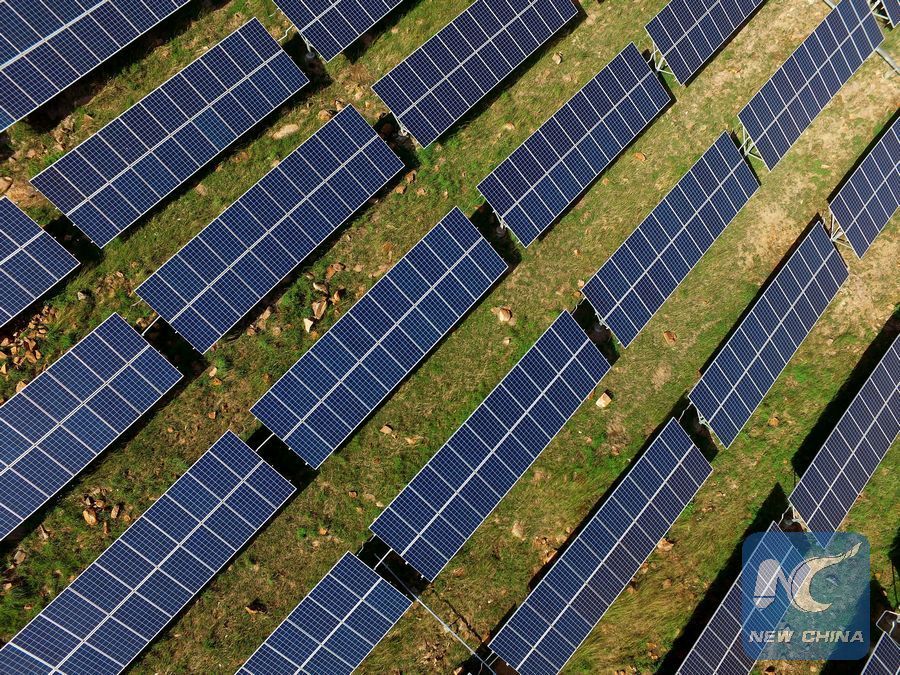
Photo taken on May 15, 2016 shows a green energy base which provides both wind and solar power in Yiyang County, central China's Henan Province. The energy base, which takes advantage of its barren mountains and barren fields, have built windmills and installed photovoltaic panels to provide green energy to local people. (Xinhua/Tian Yiwei)
NAIROBI, Jan. 17 (Xinhua) -- Large-scale adoption of green technologies in key sectors like manufacturing and transport is key to boosting air quality in China's major cities, the UN environment agency said.
United Nations Environment Program (UNEP) Executive Director Erik Solheim, who acknowledged that rapid industrial development has impacted negatively on air quality in Chinese cities, said that less reliance on fossil fuels will reduce this challenge.
"There has been unprecedented development in China that has lifted millions out of poverty. China's tackling pollution problem linked to this development is very important," Solheim told Xinhua in a recent interview in Nairobi.
He spoke against a backdrop of smog that has engulfed northern Chinese cities recently.
He was optimistic that a solution to the air pollution challenge in Chinese cities was in the horizon thanks to commitment by the Asian giant to hasten adoption of cleaner energy sources.
"A shift from coal to renewable energy sources will make China richer. What is important now is for China to set targets and regulate the market and leave it to the private sector to fund all the exciting technologies that will be needed to achieve cleaner growth," said Solheim.
He noted that adoption of hybrid cars and metros is a giant step toward solving air quality challenges in Chinese metropolises.
Solheim hailed China's quest to become a leader in development of hybrid and electric vehicles that pollute less.
"Technical solutions are there and will offer enormous markets for Chinese companies," Solheim told Xinhua, adding that investments in wind and solar energy will have multiplier impact to the Chinese economy.
Progressive regulatory and policy instruments coupled with political commitment are key to promoting adoption of cleaner technologies that would tackle air pollution in Chinese cities.
Solheim urged China to scale up investment in green technologies and adopt best practices from elsewhere in order to find lasting solution to smog in cities.
"China can tap into experiences elsewhere and implement good policies to address air quality challenges in cities. Most importantly, China should consider environment protection as a business opportunity," said the UNEP chief.
He noted that air pollution is inevitable in many developing economies while strategic regulatory, policy and technology-driven interventions are key to minimizing its negative impacts.

